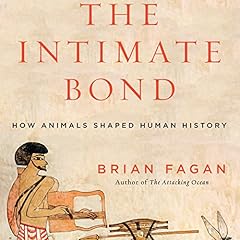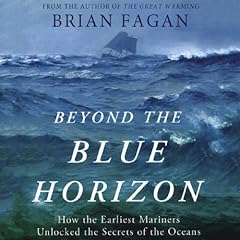
Fishing
How the Sea Fed Civilization
No se pudo agregar al carrito
Add to Cart failed.
Error al Agregar a Lista de Deseos.
Error al eliminar de la lista de deseos.
Error al añadir a tu biblioteca
Error al seguir el podcast
Error al dejar de seguir el podcast
Compra ahora por $22.22
-
Narrado por:
-
Shaun Grindell
-
De:
-
Brian Fagan
In this history of fishing - not as sport but as sustenance - archaeologist and best-selling author Brian Fagan argues that fishing was an indispensable and often overlooked element in the growth of civilization. It sustainably provided enough food to allow cities, nations, and empires to grow, but it did so with a different emphasis.
Where agriculture encouraged stability, fishing demanded movement. It frequently required a search for new and better fishing grounds; its technologies, centered on boats, facilitated movement and discovery; and fish themselves, when dried and salted, were the ideal food - lightweight, nutritious, and long-lasting - for traders, travelers, and conquering armies.
This history of the long interaction of humans and seafood tours archaeological sites worldwide to show listeners how fishing fed human settlement, rising social complexity, the development of cities, and ultimately the modern world.
©2017 Brian Fagan (P)2017 TantorLos oyentes también disfrutaron:




















Reseñas de la Crítica
Las personas que vieron esto también vieron:







Thought provoking
Se ha producido un error. Vuelve a intentarlo dentro de unos minutos.
The survival of any species is dependent on nourishment. In civilization’s beginning, archaeologists surmise human ancestors became hunter-gatherers to survive. Humanity formed into groups from a survival instinct that led to communal association. Fagan’s archeological research revealed artifacts that show hunter-gatherers found fishing as an integral part of humanity’s drive to survive. He notes fragments of rock in pre-history African’ sites were honed with barbs to stop fish from wiggling free after being speared. Fish skeletons were found near the homed spear heads. Fagan finds barbed artifacts near Kenyan and Tanzanian lakes in Africa. Fagan notes, the earliest spear heads had barbs on one side while later spear heads had barbs on both sides.
Several chapters at the end of Fagan’s book recount the consequences of global warming and the insatiable demand of fish eaters that are depleting the world’s fish habitats and populations. Fagan offers interesting insights to listener/readers on the origin of fishing’s ancient, present, and future importance to humanity.
FISH EATERS
Se ha producido un error. Vuelve a intentarlo dentro de unos minutos.
If you liked his Little Ice Age, you might like this.
Se ha producido un error. Vuelve a intentarlo dentro de unos minutos.

